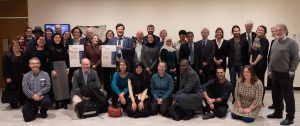
The annual Research Week of the Library and Information Service of Stellenbosch University (SU) kicked off later than usual this year due to the Coronavirus pandemic. The original date of 27–31 July coinciding with the 2020 Olympic Games. But with Covid-19 everything changed, and we had to move Research Week to the new date of 24–28 August. Since plenty of time had been spent on planning and preparation, we decided to stick with the original theme of “Going for research gold in 2020”, even though the Olympics had been postponed.
This year’s Research Week was presented in an online format for the first time and we were excited to see what the reception of this format would be. We reached a wider audience, including participants from Medicine and Health Sciences, the USB and postgraduate students from all over the country. Registrations and participation far exceeded our expectations.
Research Week was launched on Monday 24 August, where Ms Ellen Tise welcomed everybody, with a special welcome to Professor Cloete and guest speaker Dr Balindiwe Sishi. Ms Tise reminded all that the aim of a research week is to inspire and equip Masters, PhD and emerging researchers with practical knowledge of research essentials. Professor Cloete commended the library for still managing to hold the event online. He pointed out that this is a reflection of a “world class library and information service with world class facilities for researchers”.
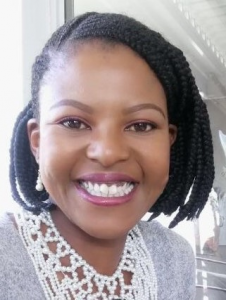 Dr Sishi’s presentation, titled The journey through my eyes, started off by reminding all that Research Week falls within Women’s month. She then relayed her journey towards attaining a PhD, which included the challenges of finishing her first degree on time, death of close family members, struggling to fund her postgraduate studies and numerous rejections to study for her favourite area, medicine. Dr Sishi stated that her struggles taught her the importance of having a plan B in life. It is always important to “do the best you can with what you have. Do not focus on the door that is closed but the one that is open”, she stated. Later, as a promising emerging researcher, Dr Sishi told of how she was honoured to be selected for a conference attended by a number of Nobel Laureates. Among her take home messages was that emerging researchers should always find themselves good mentors, collaborate, choose important and fascinating topics, and focus on achieving their goals. True to her promise, Dr Sishi offered some pointers to a “recipe for a Nobel Prize”. The recipe included the importance of collaboration, publishing, and producing many PhD’s as some of the ingredients for attaining a potential Nobel Prize.
Dr Sishi’s presentation, titled The journey through my eyes, started off by reminding all that Research Week falls within Women’s month. She then relayed her journey towards attaining a PhD, which included the challenges of finishing her first degree on time, death of close family members, struggling to fund her postgraduate studies and numerous rejections to study for her favourite area, medicine. Dr Sishi stated that her struggles taught her the importance of having a plan B in life. It is always important to “do the best you can with what you have. Do not focus on the door that is closed but the one that is open”, she stated. Later, as a promising emerging researcher, Dr Sishi told of how she was honoured to be selected for a conference attended by a number of Nobel Laureates. Among her take home messages was that emerging researchers should always find themselves good mentors, collaborate, choose important and fascinating topics, and focus on achieving their goals. True to her promise, Dr Sishi offered some pointers to a “recipe for a Nobel Prize”. The recipe included the importance of collaboration, publishing, and producing many PhD’s as some of the ingredients for attaining a potential Nobel Prize.
Presentations during the rest of Research Week skilled participants in conducting efficient literature and systematic reviews, and in making optimal use of some of our subscription databases. Practical sessions included how to use Mendeley, gaining and keeping momentum in academic writing, the use of Turnitin and SUNScholarData, as well as how to manage stress and time during the postgraduate journey.
Presenters from the library, as well as other SU support divisions had the opportunity to showcase the support services on offer and provided useful guidance to the participants.
Kirchner van Deventer and Siviwe Bangani
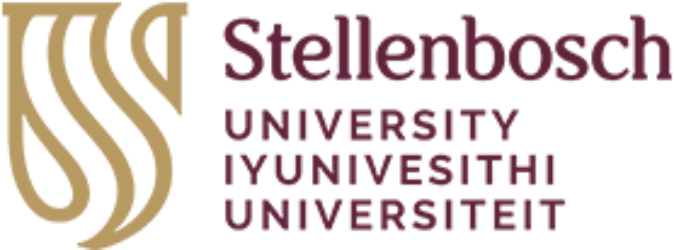
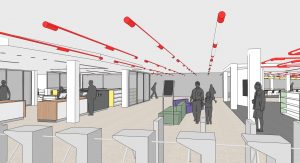
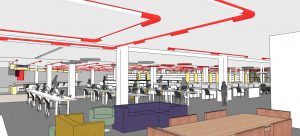
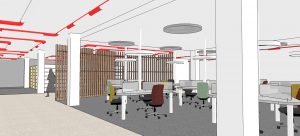
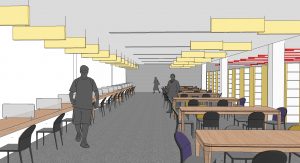
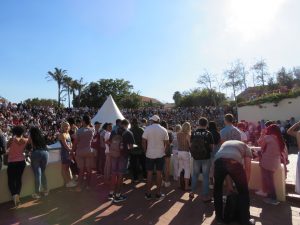
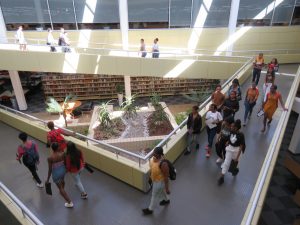
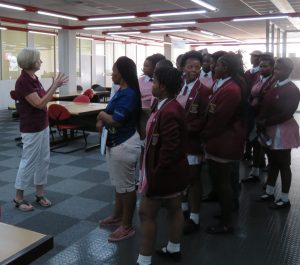 More than 1 760 visitors explored the Stellenbosch University Library on SU Open Day, Saturday 29 February 2020. Future students and their parents had the opportunity to experience the Library first-hand. They were welcomed by library staff and most visitors explored the Library unaccompanied, but some groups and families were, however, keen to be given a brief tour. Many alumni had brought their children to see “their Library”. Visitors were impressed with the Library and the staff.
More than 1 760 visitors explored the Stellenbosch University Library on SU Open Day, Saturday 29 February 2020. Future students and their parents had the opportunity to experience the Library first-hand. They were welcomed by library staff and most visitors explored the Library unaccompanied, but some groups and families were, however, keen to be given a brief tour. Many alumni had brought their children to see “their Library”. Visitors were impressed with the Library and the staff.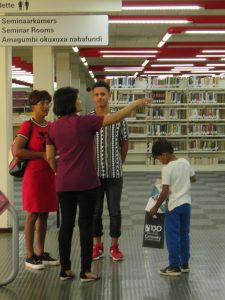
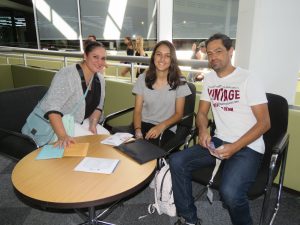
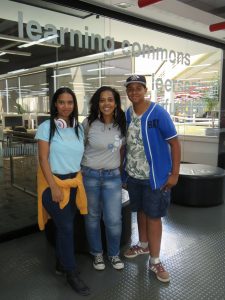
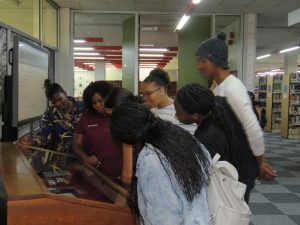 The more than 217 visitors to the Special Collections Division showed enthusiasm to see and learn from the staff about the material the Division takes care of.
The more than 217 visitors to the Special Collections Division showed enthusiasm to see and learn from the staff about the material the Division takes care of.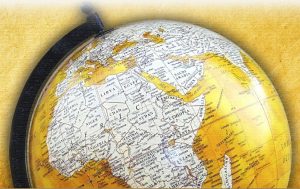
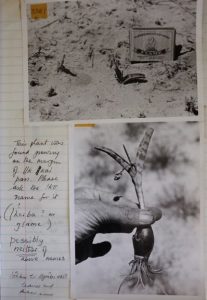
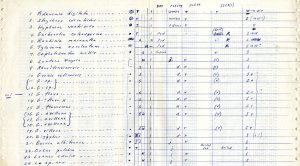

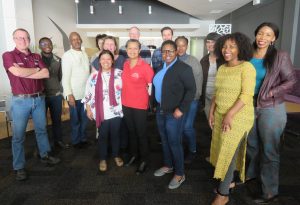
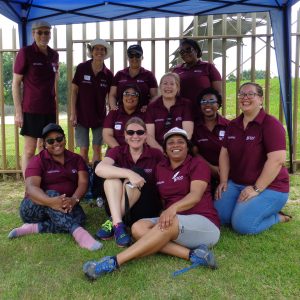
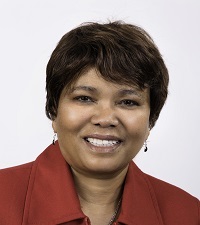 Ms Ellen Tise, Senior Director of the Library and Information Service, was an invited panellist in the Open Science and Library Infrastructures panel discussion at the first
Ms Ellen Tise, Senior Director of the Library and Information Service, was an invited panellist in the Open Science and Library Infrastructures panel discussion at the first 